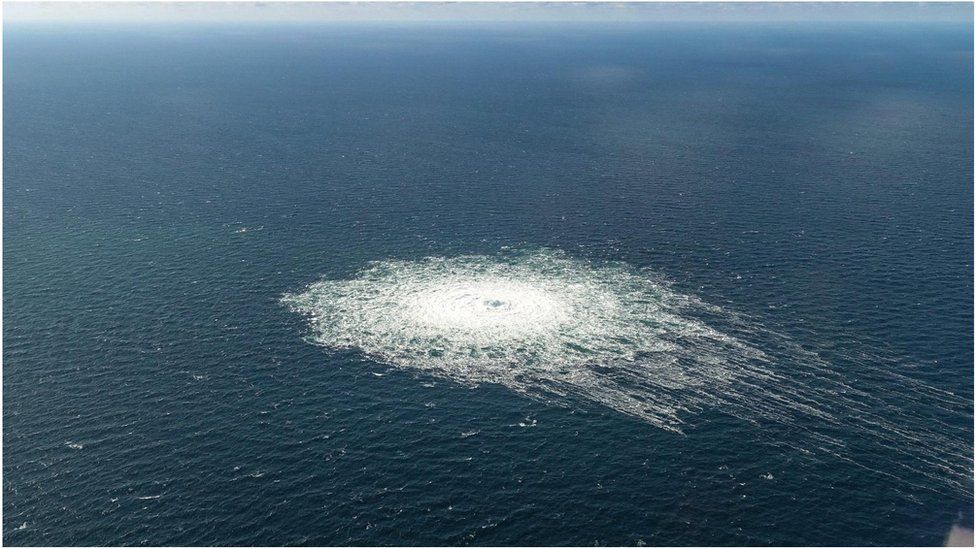Nord Stream: Denmark closes investigation into pipeline blast
- Published

Danish police have said they are closing their inquiry into the blasts that tore apart two pipelines intended to ship Russian gas to Germany.
Authorities concluded the Nord Stream 1 and 2 pipelines had been "sabotaged" in September 2022 - but said there was no basis for pursuing a criminal case.
Responsibility for for the suspected sabotage is still unknown.
Sweden closed its investigation earlier this month, citing a lack of jurisdiction.
Germany is still investigating the incident.
In September 2022, leaks were discovered in three of the four gas lines east of the Danish island of Bornholm in the Baltic Sea. Seismic institutes had recorded large underwater explosions just before.
Soon after, Swedish prosecutors said that traces of explosives had been found on several objects recovered from the site and stated that the explosions had been due to "gross sabotage".
The pipelines were built by Russia's gas giant Gazprom. Nord Stream 1 was operational from 2011 to 2022. Nord Stream 2 was completed in 2021, but never used because Germany halted the project days after Russia's full-scale invasion of Ukraine in February 2022.
Danish police said that the investigation, which was carried out with the Danish intelligence agency PET, had been "complicated and extensive" and said it would not provide further comment on the case.
Reacting to the Danish police's statement, Kremlin spokesman Dmitry Peskov said: "The situation is close to absurd.
"On the one hand, they recognise that a deliberate sabotage took place, but on the other hand they are not moving forward."
An investigative report by four Nordic public broadcasters in 2023 found Russian ships to have been involved in suspicious movements in the area in the months leading up to the blasts.
Moscow denies responsibility, saying the US and UK were to blame.
Last year, US intelligence officials told the New York Times newspaper that a pro-Ukrainian group might have plotted the attack. The Ukrainian government has denied involvement.
Related Topics
- Published18 November 2022
- Published8 March 2023
- Published7 February